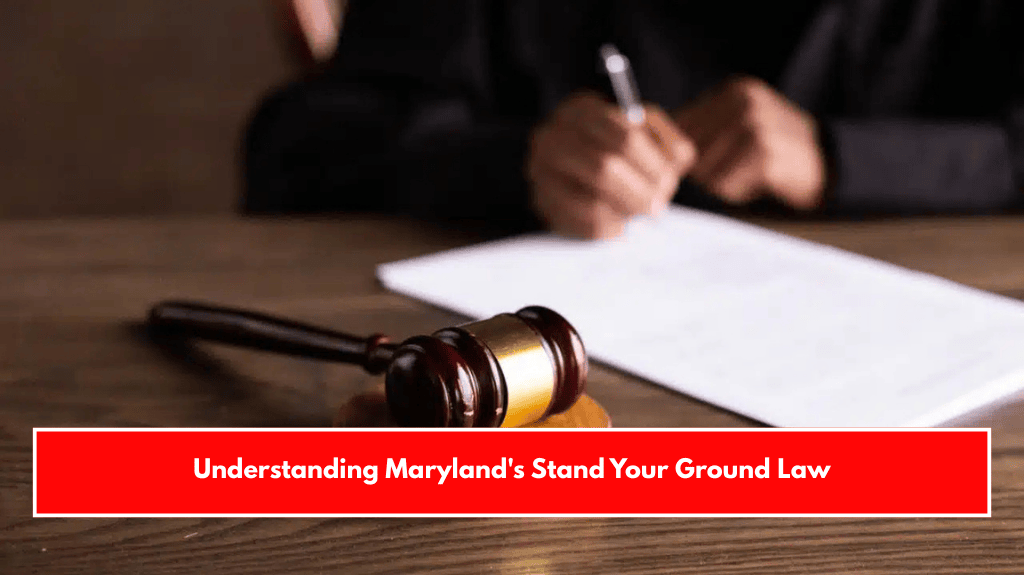Maryland’s approach to self-defense law is fundamentally different from states with explicit “Stand Your Ground” statutes. Instead, Maryland follows a duty to retreat doctrine in most situations outside the home, while adhering to the Castle Doctrine within one’s residence. Understanding these principles is essential for anyone living in or visiting Maryland.
Maryland Does Not Have a Stand Your Ground Law
Unlike many states, Maryland does not have a statutory Stand Your Ground law. In jurisdictions with such laws, individuals are generally permitted to use force-including deadly force-in self-defense without any obligation to retreat, provided they are lawfully present and reasonably believe they face imminent harm. Maryland, however, imposes a duty to retreat before resorting to deadly force, except when the individual is in their own home.
The Duty to Retreat
What Is the Duty to Retreat?
Maryland’s duty to retreat means that if you are confronted with a threat outside your home, you must attempt to avoid the conflict and retreat to safety if it is reasonably possible and safe to do so before using force, especially deadly force. This principle is rooted in Maryland’s common law and reinforced by court decisions rather than explicit statutory language.
Key Points of the Duty to Retreat:
- The obligation applies in public spaces and anywhere outside your home.
- Retreat is required only if it can be done safely. If retreat would put you at greater risk, you are not required to do so.
- The use of deadly force is justified only as a last resort, when no safe escape is possible5.
Legal Criteria for Self-Defense:
To successfully claim self-defense in Maryland, you must demonstrate:
- You were not the aggressor or did not escalate the conflict.
- You had a reasonable belief of imminent bodily harm.
- The force used was proportionate to the threat.
- Retreat was not a viable or safe option.
The Castle Doctrine: No Duty to Retreat at Home
What Is the Castle Doctrine?
Maryland recognizes the Castle Doctrine, which allows individuals to use reasonable force, including deadly force, to defend themselves against an intruder in their own home without any obligation to retreat. The underlying principle is that your home is your “castle,” and you are entitled to protect it from unlawful intrusion.
Key Aspects of the Castle Doctrine:
- Applies exclusively to one’s home (and, in some interpretations, place of business).
- No duty to retreat before using force against an intruder.
- The threat must be imminent, and the force used must be reasonable and proportionate to the threat.
Stand Your Ground vs. Duty to Retreat: A Comparison
| Principle | Stand Your Ground | Duty to Retreat (Maryland) |
|---|---|---|
| Obligation to Retreat | No | Yes, if safe to do so |
| Applies Where? | Anywhere you have a legal right | Anywhere outside your home |
| Home Exception | Included (no retreat at home) | Castle Doctrine (no retreat at home) |
| Use of Force | Reasonable belief of harm | Proportionate, only if retreat unsafe |
Imperfect vs. Perfect Self-Defense
Maryland law also distinguishes between “perfect” and “imperfect” self-defense:
- Perfect self-defense: All legal criteria are met, and the defendant is acquitted.
- Imperfect self-defense: The defendant honestly, but unreasonably, believed deadly force was necessary. This may reduce a murder charge to voluntary manslaughter but does not provide full exoneration.
Practical Implications and Legal Risks
While Maryland recognizes the right to self-defense, using force-especially deadly force-can still lead to arrest and prosecution if authorities believe your actions were excessive or not justified. Every case is fact-specific, and courts will examine whether you had a reasonable belief of imminent harm, whether you attempted to retreat, and whether your response was proportionate.
Maryland’s self-defense laws require individuals to retreat from threats in public spaces if it is safe to do so, reserving the right to “stand your ground” only within one’s home under the Castle Doctrine. Understanding these distinctions is critical for anyone who may face a situation requiring self-defense in Maryland. Always consult with a qualified attorney if you are involved in a self-defense incident, as the legal nuances can be complex and case-specific.
Sources:
- https://giffords.org/lawcenter/state-laws/stand-your-ground-in-maryland/
- https://www.mooneyesq.com/blog/2024/01/do-you-understand-marylands-self-defense-laws/
- https://en.wikipedia.org/wiki/Right_of_self-defense_in_Maryland
- https://www.findlaw.com/state/maryland-law/maryland-self-defense-laws.html
- https://www.traublaw.com/understanding-marylands-duty-to-retreat-law/
















Wow, that is pretty stupid….so a guy has a gun pointed at me and I need to ask him if I can retreat before he shoots me……..I think if you point a gun at a person or are holding a knife the citizen has a right to stop what is happening…..if you turn to run he will either shoot you or catch you and stab you in the back…..as they say, only in Maryland